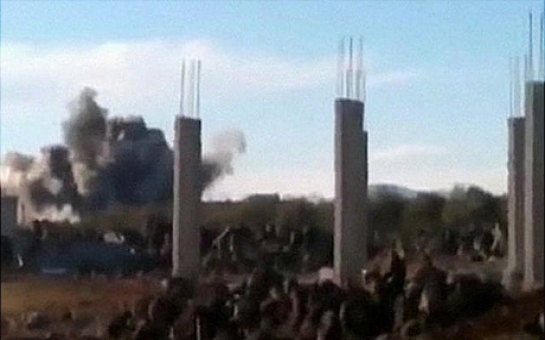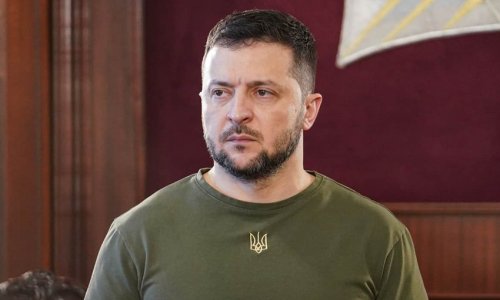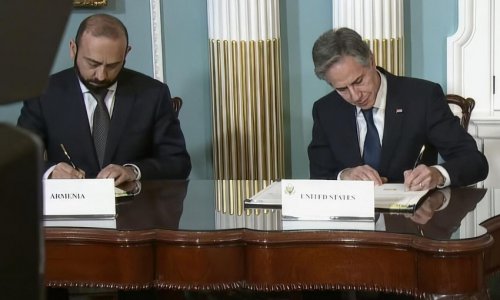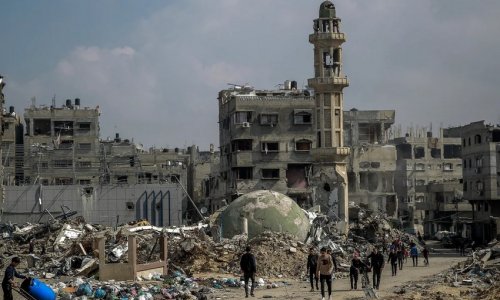Follow us !
Barrel bombs "kill 517 in Aleppo"
World
13:25 | 30.12.2013

Barrel bombs "kill 517 in Aleppo"
Barrels packed with explosives and dropped from Syrian aircraft have killed 517 people in the northern province of Aleppo since 15 December, activists say.The Syrian Observatory for Human Rights says 151 were children and 46 women.The city of Aleppo has been the focus of bitter fighting between President Bashar al-Assad's forces and rebels, BBC reported.A Norwegian frigate is meanwhile preparing to collect chemical weapons from Syria for destruction.The arms are due to be taken from the Syrian port of Latakia to Italy.There, they will be loaded onto a US Navy ship and taken to international waters for destruction in a specially created titanium tank on board.The global watchdog, the Organisation for the Prohibition of Chemical Weapons (OPCW), which is overseeing the destruction of Syria's chemical arms stockpile, has called on Damascus to "intensify its efforts" to help the operation.The OPCW said it was up to Syria to mitigate the risks involved in transporting the stockpile to the port.'Poised and ready'Syria agreed to abandon its arsenal to avert possible US military action in response to a sarin nerve gas attack on the outskirts of Damascus in August.Under a deal brokered by the US and Russia, the complete elimination of all chemical weapons material and equipment must be completed by the first half of 2014.OPCW chief Ahmet Umzucu said in a statement that the international community was "poised and ready".He said the UN, Russia, and other countries directly involved in the removal had agreed on how to escort the cargo vessels from Syria, after a two-day meeting in Moscow.Equipment involved in the operation includes Russian armoured vehicles, US satellites and Chinese surveillance cameras to protect the hazardous cargo.Mr Umzucu said Syrian authorities now had to "consider all possible options" to ensure the chemicals' safe transport from 12 storage sites in Syria to the loading bay in Latakia.The port lies 300km (185 miles) north of the capital Damascus.The OPCW earlier said that it did not expect to meet the 31 December deadline for shipping out the "most critical" chemicals.Shifting battle-lines and road closures caused by bad weather appeared to be the main causes of the delay.CondemnationThe Syrian Observatory for Human Rights (SOHR), a UK-based activist group with links to the opposition, condemned the continuing use of barrel bombs in Aleppo and urged outside intervention.The organisation, which relies on secret networks to relay information from the ground, also described those who failed to criticise the raids as "complicit in the massacres that have been committed and continue to be committed by the Syrian regime".While the most of those killed by barrel bombs over the past two weeks were civilians, 46 were rebels, according to the SOHR.The devices have rarely been used on such a sustained scale, says the BBC's Arab Affairs Editor, Sebastian Usher.Aleppo is devastated and divided, with fighting at a stalemate, but with a major peace conference due next month, the Syrian government is trying to wrest back control of as much territory as possible, our correspondent adds.In the most recent attack, 25 civilians are reported to have been killed when explosives were dropped on a vegetable market in Aleppo on Saturday. ANN.Az










